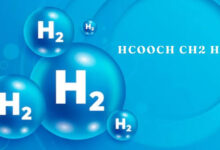For air conditioners to function effectively and efficiently, routine maintenance by a trusted ac repair service in Singapore is necessary. Assuring that the coils and other components are clear of dirt and grime that can impair performance, chemical cleaning is a crucial step in this maintenance procedure. However, there are a few typical errors that can happen while using chemicals to clean, which might result in more problems or decreased effectiveness. Here are six errors to stay away from:
Failing to Switch Off the Power:
Turning off the power is one of the most important things to do before doing any repair on an air conditioner. Serious safety risks, such as electric shock or damage to the machine itself, arise from failing to accomplish this. Make sure the power source is turned off before beginning the chemical cleaning procedure. By following this procedure, cleaning agents are not only kept safe from accidental harm to electrical components, but also the technician is kept safe.
Employing Wrong Chemicals:
When cleaning, using the incorrect chemicals might seriously harm the air conditioning system. Certain cleaning agents are needed for different systems depending on the materials and components of those systems. Applying strong acids, for instance, to aluminium coils may cause corrosion and early failure. Finding the appropriate chemical solutions for the particular kind of air conditioner being serviced is essential. Make sure the correct chemicals are used by always consulting a skilled technician like https://www.socool.sg/ or the manufacturer’s instructions.
Not Following the Manufacturer’s Instructions:
Manufacturer-specific maintenance instructions are often included with air conditioning devices. Disregarding these recommendations may result in incorrect cleaning techniques, which may harm the appliance or void warranties. It’s critical to study and comprehend the manufacturer’s instructions for the frequency of chemical cleaning, the right cleaning products, and the right methods. By following these recommendations, you may be confident that the cleaning procedure is both efficient and equipment-safe.
Chemical Overuse:
When it comes to chemical cleaning, more is not necessarily better. The performance of the air conditioner may suffer from residue accumulation on coils and other parts caused by overuse of cleaning products. Overuse of chemicals can also harm surrounding plants and animals and create environmental problems. Never use more than what is prescribed; always follow the dilution ratios and application guidelines. Better cleaning outcomes can be achieved with a methodical, regulated technique that won’t put the unit at danger.
Not Giving It a Good Rinse:
It’s crucial to give the appliance a good rinse after using chemical cleansers. If this isn’t done, residues may be left behind that eventually draw dirt or lead to corrosion. Additionally, residual chemicals might hinder airflow and lower the air conditioning system’s effectiveness. Make sure no cleaning agents are left behind by thoroughly rinsing the coils and other cleaned components with clean water. This action is essential to preserving the air conditioning system’s durability and effectiveness.
Ignoring Upkeep Needs:
One part of maintaining an air conditioner is chemical cleaning. When annual maintenance and inspections are neglected, dirt and debris can accumulate and eventually reduce the effectiveness of chemical cleaning. An air conditioner that is well-maintained will work more effectively and require fewer extensive cleanings. Arrange for routine maintenance inspections with a licensed technician to make sure all parts are operating at maximum efficiency and to spot any possible problems before they become more serious.
A vital component of air conditioning maintenance is chemical cleaning, but it needs to be done carefully to protect the unit and prolong its life. You can make sure that your air conditioning system runs as efficiently as possible by avoiding these six typical mistakes: forgetting to turn off the power, using the wrong chemicals, disobeying manufacturer instructions, overusing chemicals, not rinsing well, and skipping routine maintenance.




